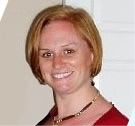Lisa, US Army veteran

Lisa, US Army veteran
Project Engineer, Shell International Exploration and Production
Q. What branch of the military did you serve under? What was your position in the military?
A. I served in the U.S. Army as an Engineer Captain and a company commander.
Q. What were your responsibilities in the military?
A. I was responsible for a US base camp in Korea, over $1 billion worth of munitions located at 81 different locations, the health, morale, and welfare of 20 US and Korean Soldiers, and managing over 100 US and Korean civilian employees.
I was hand selected to command the ammunitions unit with the most assets on the peninsula as an Engineer Officer.
I coordinated and completed the largest coalition ammunition inventory ever resulting in account validation.
Q. What is your current position?
A. I'm a Project Engineer at Shell International Exploration and Production.
Q. Serving in the military provides great leadership skills. Beyond that, what skills and experiences did you learn in the military that enable you to be successful on the job?
A. I work in the Unconventional Oil Group and my military experience directly translates to my current job. My team is implementing new technology in undeveloped areas to do something that's never been done before. Knowing how to coordinate efforts and work with atypical materials, in a new area with people I know little about, directly relates to my job at Shell. I think one of the benefits of being a military hire is working with people from a variety of different cultures and backgrounds to achieve one goal. Shell is an international company operating all over the world. Working overseas in the military, being on a coalition team, and even leading a military unit consisting of people from a variety of backgrounds, all prepared me for working at Shell.
I especially like working at Shell because my abilities as a leader have been utilized with an understanding that I do not have an industry-specific technical background. Every leader and manager within the company is willing to work with me and my peers to develop the requisite knowledge. Also, the networking groups which include experienced hires, cultural and ethnic-based groups and prior military groups, helped me transition from military to civilian.
Q. Did you use the benefits of the GI Bill to enhance your education?
A. No. I graduated from the United States Military Academy (West Point) and then the Army paid for my Masters from the University of Missouri-Rolla in exchange for two more years of active duty service.


